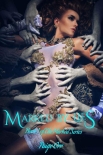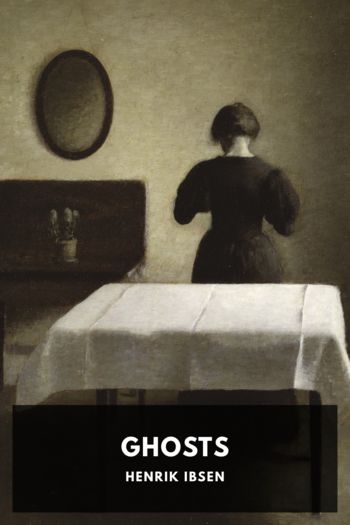Murderous, David Hickson [most read book in the world .TXT] 📗

- Author: David Hickson
Book online «Murderous, David Hickson [most read book in the world .TXT] 📗». Author David Hickson
Khanyi smiled, and it was like an extra light had been switched on in the room. She slurped at her hot chocolate noisily as if demonstrating how to do it, and he obediently raised the mug to his lips and tested his drink. Through the window I could see the guard in the tower shifting his position subtly, like the minute hand making its way around the circumference of a clock. The rain was still coming down hard, and for a moment the only sound in the room was the gentle wash of drops striking the window. Khanyi explained in Zulu that we were not police, that we wanted to have a conversation. A conversation about his father. There was a silence while Q absorbed this. Khanyi let the silence extend as we’d discussed, and eventually Q spoke, his voice hoarse from lack of use. He said only a few words that I didn’t understand, but Khanyi’s reply included the word for police, and so I guessed that he was going over the surprising element of our situation. I turned away from the window in time to see him lift the mug to his lips for a tentative sip.
“Not as good as the hot chocolates your father gave you on Saturday nights,” I said in English. “Down at Rosie’s shebeen. Not enough sugar?”
Q didn’t look at me but kept his gaze on the hot chocolate. We watched him take another sip, then he placed the mug back on the table, and removed his hands from it as if realising that it looked as if he was tasting it in order to answer my question.
“Might be too much sugar,” said Khanyi after another loud slurp.
“You’re right,” I said. “Too much sugar and too little chocolate.”
I turned to look out at the guard in the tower. The rain eased a little and I could make out the barrel of the weapon slung on a harness over his shoulder. It looked like a McMillan TAC-50, which surprised me. A sniper’s weapon. He wasn’t going to be standing up there shouting at anyone who tried to cut through the barbed wire. The silence in the room swelled, and we listened to the gentle noise of the rain, and the ever-present sounds of the prison.
“What are you offering me?” said Q eventually, his voice raised a little to draw my stubborn back into the conversation. I turned to him.
“Nothing,” I said. “Did someone say we were offering you something?”
Q looked at me for the first time. His eyes were dark holes in a face that was stained with exhaustion. I don’t suppose that he had been allowed much sleep, and his mind had retreated far behind the shell that faced me now. He struggled to hold my eyes and blinked rapidly a few times. I could see the confusion stirring behind his eyes. The concept of talking in exchange for some kind of leniency is so ingrained that it comes as a surprise when the rules are changed. That surprise was what I needed.
“You remember those trips with your father to Rosie’s shebeen?” I asked.
“I’ve been ill,” said Q defensively.
“I know,” I walked over to the table and took a seat. I sipped a little more of the disgusting hot chocolate. “How has the epilepsy been? Worse in here?”
Q shook his head and looked at me in a way that was almost a plea. It surprised me to see that look so soon. It comes when the emotions are stirred, when you’ve reached behind the wall they have built to keep the dangerous stuff hidden, and you’re ready to start the approach from inside the camp. For a moment I sensed the tragedy of Q’s life. We’d had to go back twenty-five years to find a happy moment in his life, and just the mention of it had touched him.
“Your father would be proud to know you remember those Saturday evenings. You went every week? A family occasion? You and your parents?”
“We didn’t have my mother with us,” said Q.
I nodded. His mother had died when he was only a few years old. Andile’s background sheets had been thorough.
“You and your father then.”
“And my brother,” said Q with a hint of irritation in his voice, as if my not mentioning his brother bothered him.
“They say you saw what happened,” I said. “To your father. That you were there.”
Q nodded and looked down at his hot chocolate. He placed both hands around it again and blinked.
“Sunday evening, wasn’t it?” I said.
“Sunday,” confirmed Q and he took a breath, then let it out like a deep sigh, watching me all the time. “You want to talk about my ubaba? About him being shot?”
“I don’t,” I said, dismissing the defining moment of his life with two words and a shake of the head. “Let’s talk about the night before your father was shot. You went to Rosie’s?”
Q nodded. For a moment he looked as if his confusion would cause him to clam up, but the appeal of speaking about a safe subject that had no bearing on his current misery, was too strong.
“Xolani and I had our chocolate drink at Rosie’s,” he said. “ubaba had his three beers.”
“Every week the same?” I asked.
“Just the three Lions. He sat on the stoep, my ubaba, and talked with his friends. We played soccer with the other kids in the street.”
“You were a good player?”
“No, but Xolani had a mean foot on him. He was just eight, but he could put that ball right where he wanted. We played until the sun was down. If the ball burst, we had to wait for ubaba to fix it, so we’d use an old Castrol can, and kick that around.”
“You were playing with a can that night? Your father’s last night?”
Q nodded. “We played until it was too dark, and not even the lights from Rosie’s were enough. Then we walked home.”
“Your father and you?” I asked. “Ubaba





Comments (0)